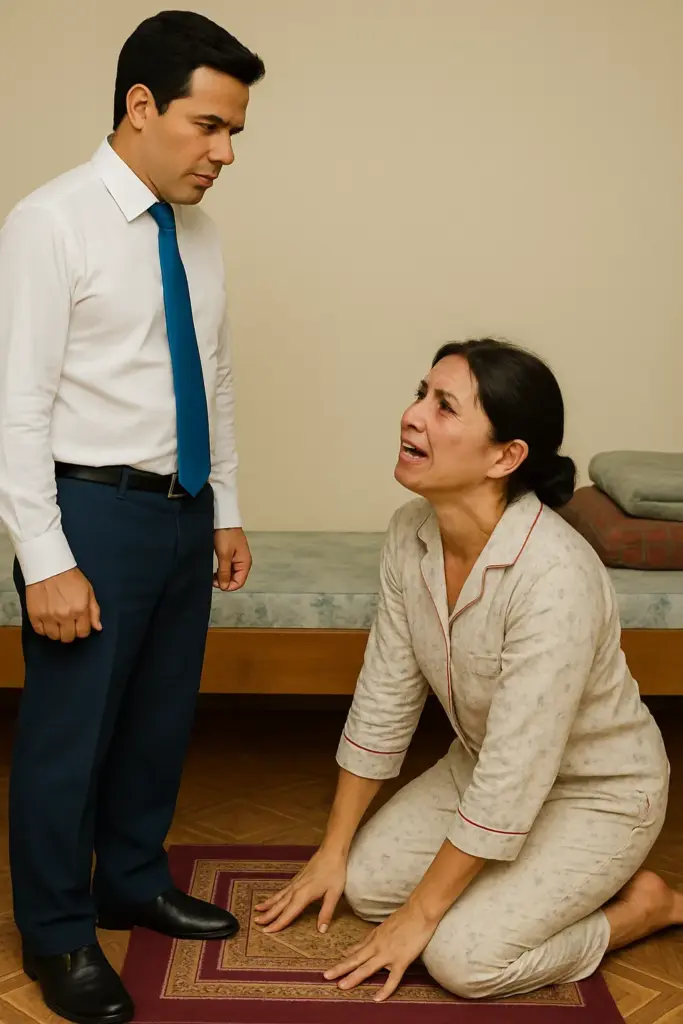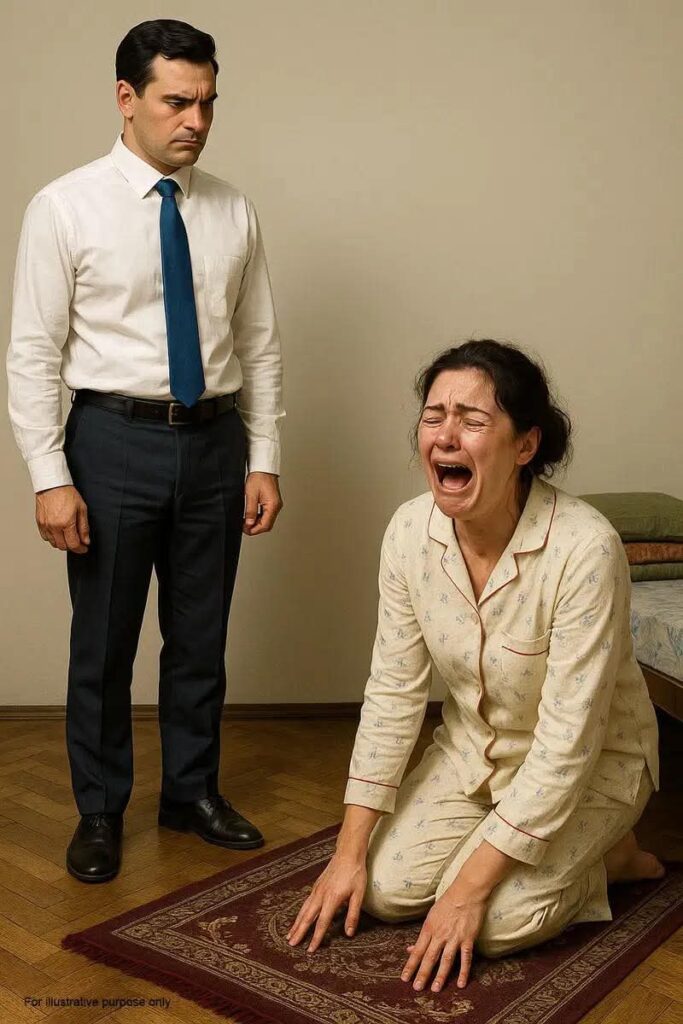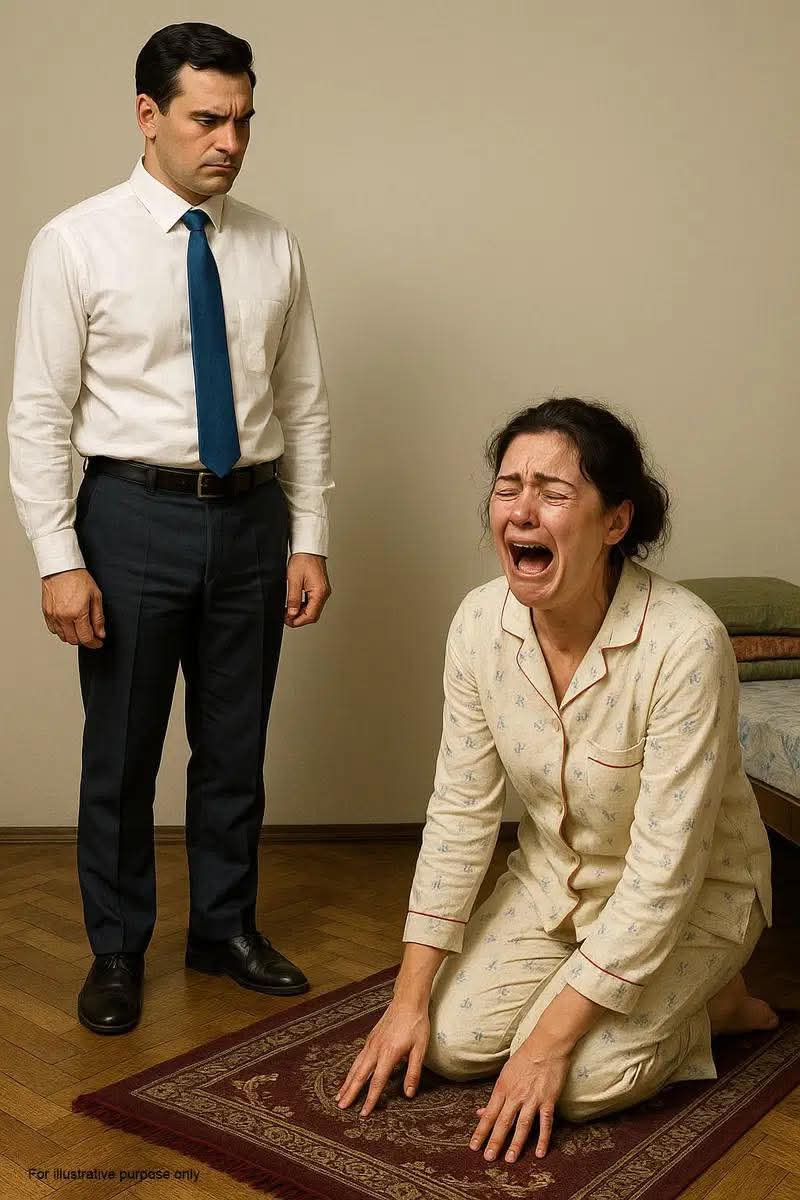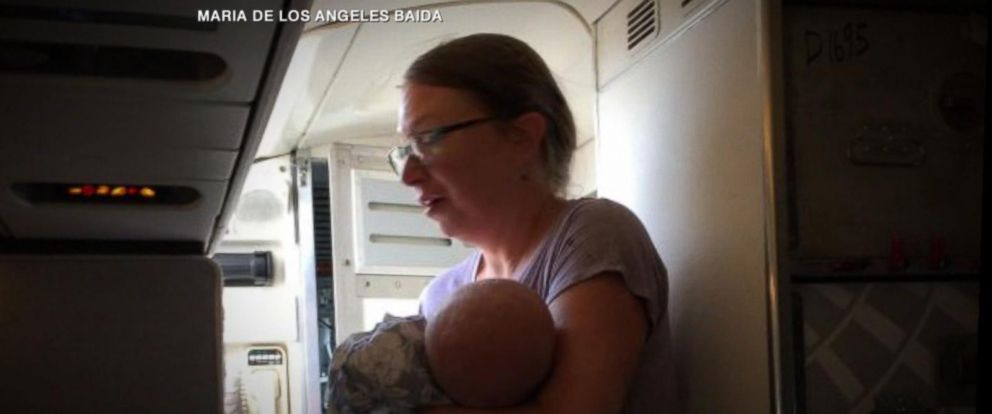After Divorce, He Tossed Me a Pillow with a Sneer: Héctor and I had been married for five long years—a union that felt more like a silent agreement than a love story. From the very first day I became his wife, I learned to live with the coldness in his words and the emptiness in his eyes.
After Divorce, He Tossed Me a Pillow?
Héctor wasn’t cruel. He didn’t shout, he didn’t raise a hand, and yet, his apathy cut deeper than any insult could. Day after day, his indifference hollowed me out, like a tree slowly eaten away from the inside.
After our wedding, we moved into his parents’ house in a modest neighborhood in Mexico City. It wasn’t the life I had imagined when I dreamed of love and marriage.
Every morning, I woke up before sunrise. I cooked, I did laundry, I scrubbed the floors until my hands were raw. Every evening, I sat at the table waiting for him, hoping—just hoping—that tonight would be different, that he would look at me and smile, that he would say, “Let’s eat together.”

But all I ever got were the same lifeless words:
“Yeah, I already ate.”
Sometimes I wondered if I was even his wife—or just another tenant occupying space in his life. I tried. God knows I tried. I cooked his favorite dishes, I ironed his shirts with care, I even tried to start conversations. But nothing could melt the ice in his heart. All I got in return was silence, and the crushing weight of loneliness.
Then one evening, Héctor came home with that same expressionless face, but this time something was different. He sat down at the table without taking off his jacket, pulled out a sheet of paper, and slid it across to me.
“Sign it,” he said, his tone as cold as ever. “I don’t want to waste either of our time anymore.”
My breath caught in my throat. My hands trembled. I had imagined this moment so many times, but now that it was real, it still pierced me like a blade. Tears welled up as memories flashed before me—of nights spent alone in the dark, of silent dinners, of all the times I had hoped he’d notice my pain.
But I didn’t fight. What was there to fight for? I picked up the pen with shaking fingers and signed my name. That was it. Five years of a marriage that never really existed, reduced to ink on paper.
I packed my things quietly. There wasn’t much to take—just a few clothes, some toiletries, and my old pillow. That pillow was the only thing that felt truly mine in that house.
It wasn’t much to look at. The pillowcase was faded, with yellow stains and a few tiny tears. Héctor hated it. He used to complain about it all the time, mock its worn-out look. But I couldn’t let it go. That pillow was the one thing I brought with me when I left my mother’s house in Oaxaca to study in the city. It had been with me through all my sleepless nights, my exams, my first job, and now, through a loveless marriage.
As I wheeled my suitcase to the door, Héctor tossed the pillow at me with a bitter laugh.
“Take it and wash it. It’s probably falling apart.”
His sarcasm stung, but I said nothing. I clutched the pillow tightly, my heart aching—not for him, but for the years I had wasted loving a man who never cared.
Back in my small rented room, I sat on the bed staring at the pillow. His mocking words echoed in my head. I thought, Maybe I should at least wash it. I unzipped the pillowcase, ready to throw it in the laundry.
That’s when I felt it—something hard, hidden inside the softness. My fingers brushed against a small lump. Curious and confused, I reached in and pulled out a bundle wrapped in a plastic bag.

My hands shook as I opened it. Inside was a stack of crisp 500-peso bills. And a folded piece of paper.
When I unfolded it, my breath caught. The handwriting was shaky, but so familiar. It was my mother’s.
“My daughter,” the note read, “this is the money I saved for you in case life becomes too hard. I hid it in your pillow because I knew you’d be too proud to accept it if I gave it to you. No matter what happens, don’t suffer for a man. I love you.”
The tears I had been holding back finally burst free, falling onto the yellowed paper. I remembered the day she gave me that pillow, just before my wedding.
“It’s soft, so you’ll sleep well,” she said with a smile that now I realized was tinged with sadness. I had laughed then, teasing her for worrying about such small things.
But now, sitting alone with the note in my hand, I understood. She knew. A mother always knows.

She had given me a lifeline, hidden inside something so ordinary, because she feared what I would never admit—that I might choose wrong, that I might suffer, that I might feel trapped.
I hugged the pillow to my chest and sobbed—not for Héctor, not for the failed marriage, but for the immeasurable love of a mother who thought of everything, even my pride.
That night, I slept with the pillow under my head, my tears soaking into its fabric. But this time, I didn’t cry out of despair. I cried because I was grateful. Because I still had something no one could take from me—a mother’s love, a second chance, and a big world waiting beyond this pain.
The next morning, I woke up early. I folded the pillow carefully and placed it back in my suitcase. Then I looked at myself in the mirror. My eyes were swollen, my hair a mess, but behind that tired face, there was something new—strength.
“This is not the end,” I whispered to my reflection. “This is my beginning.”
I decided to rent a smaller room, closer to my work. I would save, I would send money to my mother, and I would live a life where I no longer waited for scraps of affection from anyone.
That old pillow, that bitter sneer, those wasted years—they were just the last lines of a sad chapter. And today, I would start writing a new one.
One where I live for myself. For my mother. For all the dreams I had put on hold.
Because sometimes, what seems like the end is really just the beginning of something greater.





